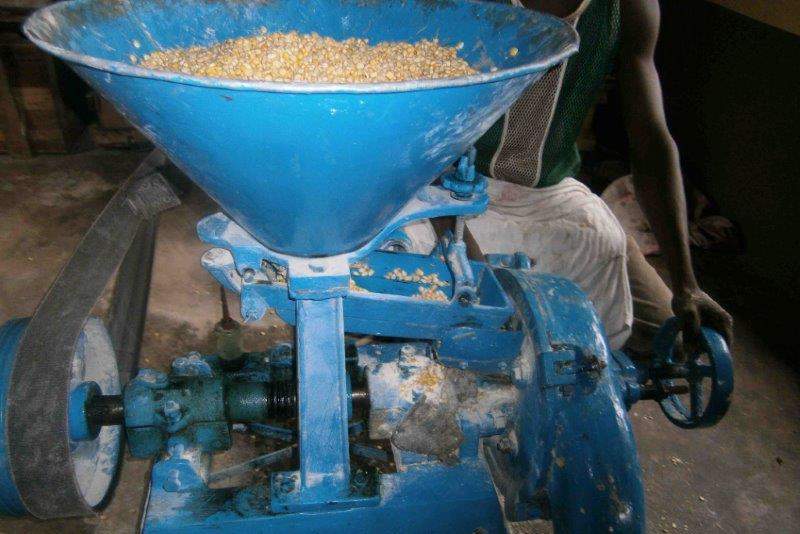Ga-Te
In the Volta region of Ghana and among the Ewe people we call it "GATE" which is pronounced as two words (Ga_te) and literally GA means iron or metal and TE means grinder or mill. So "GA-TE" means an Iron mill.
Before the coming of the Europeans and the introduction of such complex machinery, Milling was traditionally done through stone grinders which is now obsolete and then later the power-driven hammer mill which is still an essential part of the Traditional African food especial maize and cassava processing.
The "stone grinder" among the Ewe people used for grinding maize in the past is called "ete". So when the power driven metal fabricated hammer mill was introduced, they called it "Ga-te". And trust me the owner of this Milling machine in every community is a ladies man and those who work in the Mill had a lot of love from the ladies.
There's this interesting fact about the Iron mills I wish to share with you. When people come to mill their corns, some corn flour debris accumulates in a particular compartment somewhere in the machine and it is called "Gatemewor" which literally means "the corn flour from iron mill". This debris is a delicacy for those who can't afford to buy maize to grind and it is far less expensive and most times is given out freely. But it has some different kind of smell which can throw you off but is a saviour to some families.
Have you ever eaten Akple made out of "Gatemewor"?
And also the Ewe name for a Prostitute came out of this grinding stone. The word has been adultrated to sound "HETELI" but the original word is "HOTEDI" which is formed by three significant words, HO which means to uproot, TE which is the ete or grinding stone and DI which means to install in the ground.
The name HOTEDI came from the fact that in the ancient days every woman took a grinding stone to their marital homes as part of the basic traditional cooking utensils since Akple is a daily household food among the Ewes and every woman needs to grind corn to cook.
So when the marriage is over the woman must uproot her grinding stone and when she remarries another man then she has to install it in his house again. So this action of uprooting and installing the grinding stone gave rise to the name HOTEDI which was corrupted to HETELI which means a woman who keeps uprooting her grinding stone from one mans house and installing it in another mans house.
#From ETE to GA-TE
#Akpenami
#ComeTourVolta
#LongLiveKCFC
#AgbashiviPope
Source: Samuel Pope Agbenyah
KCFC News















